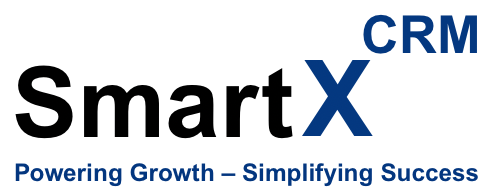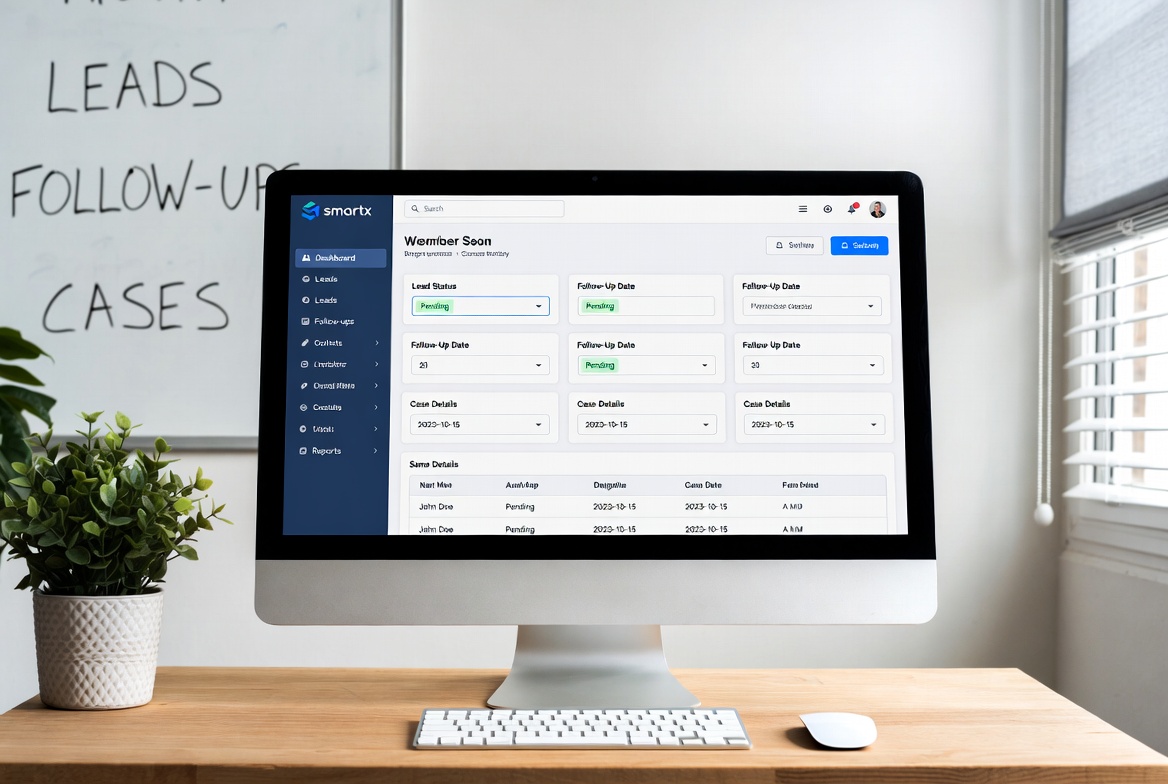Transform your manufacturing and distribution business with specialized lead generation services that deliver qualified prospects and drive sustainable growth in today’s competitive market.
Introduction: Why Manufacturing and Distribution Companies Need Specialized Lead Generation Services
Manufacturing and distribution companies face unique challenges in today’s competitive B2B landscape. Unlike consumer-focused businesses, these industries deal with complex sales cycles, high-value transactions, and niche target audiences that require specialized lead generation services for manufacturing and distribution.
NetSuite’s research shows that attracting qualified leads is one of the top challenges manufacturers face in 2025, with many relying on outdated marketing strategies while competitors dominate the digital landscape. This reality makes it crucial for manufacturing and distribution businesses to adopt targeted lead generation strategies that understand their industry’s specific requirements.
The traditional approaches of trade shows and cold calling, while still valuable, are no longer sufficient to maintain a competitive edge. Modern manufacturing lead generation services must integrate digital strategies with industry expertise to deliver results that matter. This comprehensive guide explores how specialized lead generation services can transform your manufacturing or distribution business into a lead-generating powerhouse.
Understanding the Manufacturing and Distribution Lead Generation Landscape
The Unique Challenges of Manufacturing and Distribution Lead Generation
Manufacturing and distribution companies operate in a distinctly different environment compared to other industries. Lead generation services for manufacturing and distribution must account for several critical factors that don’t apply to typical B2B businesses:
Complex Decision-Making Processes: Manufacturing purchases often involve multiple stakeholders, from engineers and procurement managers to C-suite executives. Each stakeholder has different priorities and pain points that manufacturing lead generation services must address throughout the buyer’s journey.
Extended Sales Cycles: Manufacturing deals aren’t impulse purchases. They take time. Manufacturing sales leads need nurturing, trust-building, and persistence. This extended timeline requires sophisticated lead nurturing strategies that keep prospects engaged over months or even years.
Technical Product Complexity: Manufacturing and distribution products often require detailed technical specifications and extensive documentation. Distribution lead generation services must be equipped to handle complex product inquiries and provide technical support throughout the lead qualification process.
Regulatory Compliance Requirements: Many manufacturing sectors operate under strict regulatory frameworks that impact purchasing decisions. Effective manufacturing distribution lead generation strategies must understand these compliance requirements and incorporate them into messaging and qualification processes.
Market Trends Shaping Manufacturing and Distribution Lead Generation in 2025
The manufacturing and distribution landscape is evolving rapidly, driven by digital transformation, supply chain innovations, and changing buyer behaviors. Account-Based Marketing (ABM) is one of the most effective strategies for manufacturers in 2025. Instead of targeting a broad audience, ABM focuses your resources on high-value prospects, exactly companies that are interested in your products or services.
Digital-First Buying Behavior: Modern procurement professionals research extensively online before engaging with sales teams. This shift demands that lead generation services for manufacturing and distribution maintain strong digital presence and content strategies.
Supply Chain Transparency: Buyers increasingly prioritize suppliers who can demonstrate supply chain reliability and transparency. Manufacturing lead generation services must highlight these capabilities in their messaging and value propositions.
Sustainability Focus: Environmental concerns are driving purchasing decisions across manufacturing sectors. Distribution lead generation services must incorporate sustainability messaging and demonstrate environmental responsibility.
Core Components of Effective Manufacturing and Distribution Lead Generation Services
Strategic Market Research and Target Identification
Successful lead generation services for manufacturing and distribution begin with comprehensive market research that identifies ideal customer profiles (ICPs) within specific manufacturing verticals. This research goes beyond basic demographics to understand:
- Industry-Specific Pain Points: Each manufacturing sector faces unique challenges, from automotive’s quality requirements to pharmaceutical’s regulatory compliance needs.
- Buying Cycle Patterns: Understanding when companies typically make purchasing decisions based on budget cycles, seasonal demands, and equipment replacement schedules.
- Competitive Landscape Analysis: Identifying market gaps and positioning opportunities that manufacturing lead generation services can exploit.
Multi-Channel Lead Generation Strategies
Modern manufacturing distribution lead generation requires a multi-channel approach that reaches prospects across various touchpoints:
Digital Marketing Channels:
- Search Engine Optimization (SEO): Optimizing for industry-specific keywords that manufacturing buyers use during research phases.
- Pay-Per-Click (PPC) Advertising: Targeting high-intent keywords related to manufacturing equipment, distribution solutions, and industry challenges.
- Content Marketing: Creating technical whitepapers, case studies, and industry reports that demonstrate expertise and build trust.
- Social Media Marketing: Leveraging LinkedIn and industry-specific platforms to reach decision-makers and influencers.
Traditional Outreach Methods:
- Cold Calling and Cold Emailing: Personalized outreach that addresses specific company challenges and opportunities.
- Trade Show Marketing: Strategic participation in industry events with lead capture and follow-up systems.
- Direct Mail Campaigns: Targeted physical mailings that cut through digital noise and create memorable impressions.
Lead Qualification and Scoring Systems
Effective lead generation services for manufacturing and distribution implement sophisticated lead scoring systems that evaluate prospects based on:
Demographic Scoring Factors:
- Company size and revenue
- Industry vertical and sub-sector
- Geographic location and market presence
- Technology infrastructure and readiness
Behavioral Scoring Indicators:
- Website engagement patterns
- Content consumption history
- Email interaction rates
- Social media engagement levels
BANT Qualification Framework:
- Budget: Confirming financial capacity for purchasing decisions
- Authority: Identifying decision-makers and influencers within target organizations
- Need: Understanding specific challenges and requirements
- Timeline: Determining purchase timeframes and urgency levels
Advanced Lead Generation Strategies for Manufacturing and Distribution
Account-Based Marketing (ABM) for Manufacturing
Account-Based Marketing (ABM) is one of the most effective strategies for manufacturers in 2025. Manufacturing lead generation services that implement ABM strategies typically see significantly higher conversion rates and deal values.
ABM Implementation Strategy:
- Target Account Identification: Using data analytics to identify high-value prospects that match ideal customer profiles.
- Personalized Content Creation: Developing customized marketing materials that address specific company challenges and opportunities.
- Multi-Touch Campaign Orchestration: Coordinating touchpoints across email, social media, direct mail, and advertising channels.
- Sales and Marketing Alignment: Ensuring both teams work collaboratively to nurture and convert target accounts.
Content Marketing for Technical Audiences
Manufacturing distribution lead generation requires content that demonstrates deep technical expertise while remaining accessible to various stakeholders. Effective content strategies include:
Technical Content Types:
- Engineering Whitepapers: Detailed technical documents that address specific manufacturing challenges and solutions.
- Case Studies: Real-world examples of successful implementations with measurable results and ROI data.
- Product Demonstrations: Video content showing equipment capabilities and technical specifications.
- Industry Reports: Market research and trend analysis that positions your company as a thought leader.
Content Distribution Strategies:
- Gated Content: High-value resources that require contact information for access, generating qualified leads.
- Webinar Series: Educational presentations that allow for real-time interaction with prospects.
- Industry Publications: Contributing articles and insights to trade magazines and professional associations.
Marketing Automation and CRM Integration
Modern lead generation services for manufacturing and distribution leverage sophisticated marketing automation platforms integrated with customer relationship management (CRM) systems to:
Automated Lead Nurturing:
- Drip Email Campaigns: Automated sequences that deliver relevant content based on prospect behavior and interests.
- Lead Scoring Automation: Dynamic scoring systems that adjust based on prospect actions and engagement levels.
- Behavioral Triggers: Automated responses to specific prospect actions, such as downloading content or visiting pricing pages.
CRM Integration Benefits:
- Unified Data Management: Centralized prospect and customer information accessible to sales and marketing teams.
- Pipeline Visibility: Real-time insights into lead progression and conversion rates.
- ROI Tracking: Detailed analytics on campaign performance and lead generation costs.
Industry-Specific Lead Generation Approaches
Automotive Manufacturing Lead Generation
The automotive sector requires manufacturing lead generation services that understand strict quality requirements, just-in-time delivery needs, and regulatory compliance demands. Successful strategies include:
Quality Certification Focus: Highlighting ISO certifications, quality management systems, and track records of zero-defect delivery.
Supply Chain Reliability: Demonstrating inventory management capabilities, backup supplier networks, and risk mitigation strategies.
Innovation Showcase: Presenting new technologies, materials, and processes that can improve automotive manufacturing efficiency and quality.
Pharmaceutical and Medical Device Lead Generation
Distribution lead generation services for pharmaceutical and medical device companies must navigate complex regulatory environments while demonstrating:
FDA Compliance Expertise: Showcasing experience with regulatory requirements and validation processes.
Cold Chain Capabilities: Demonstrating temperature-controlled storage and transportation capabilities for sensitive products.
Documentation Systems: Highlighting ability to maintain detailed records and audit trails required by regulatory bodies.
Industrial Equipment and Machinery Lead Generation
Industrial equipment manufacturers require manufacturing lead generation services that can effectively communicate:
Technical Specifications: Detailed product capabilities, performance metrics, and compatibility information.
Service and Support Networks: Demonstrating maintenance capabilities, spare parts availability, and technical support resources.
ROI and Efficiency Gains: Quantifying potential cost savings, productivity improvements, and operational benefits.
Technology and Tools for Manufacturing Lead Generation
CRM Systems Optimized for Manufacturing
Lead generation services for manufacturing and distribution rely on specialized CRM systems that can handle the complexity of manufacturing sales processes. Key features include:
Quote Management: Integrated systems for managing complex pricing structures, custom configurations, and multi-level approvals.
Project Tracking: Capabilities to monitor long-term projects from initial inquiry through delivery and implementation.
Technical Documentation: Storage and sharing systems for product specifications, compliance documents, and technical drawings.
Marketing Automation Platforms
Modern manufacturing lead generation services leverage advanced marketing automation platforms that provide:
Lead Nurturing Workflows: Automated sequences that adapt based on prospect behavior and engagement patterns.
Multi-Channel Campaign Management: Coordinated campaigns across email, social media, advertising, and direct mail channels.
Advanced Analytics: Detailed reporting on campaign performance, lead quality, and conversion metrics.
Data Analytics and Business Intelligence
Manufacturing distribution lead generation success depends on data-driven insights that inform strategy and optimize performance:
Predictive Analytics: Using historical data to identify patterns and predict future lead generation opportunities.
Customer Lifetime Value Modeling: Understanding the long-term value of different customer segments to optimize acquisition strategies.
Market Intelligence: Competitive analysis and market trend identification to inform positioning and messaging strategies.
Measuring Success: KPIs and ROI for Manufacturing Lead Generation
Essential Lead Generation Metrics
Lead generation services for manufacturing and distribution must track comprehensive metrics that reflect the unique characteristics of B2B manufacturing sales:
Volume Metrics:
- Lead Generation Rate: Number of qualified leads generated per month/quarter
- Cost Per Lead (CPL): Total marketing investment divided by number of qualified leads
- Lead Source Performance: Conversion rates and quality metrics by acquisition channel
Quality Metrics:
- Lead-to-Opportunity Conversion Rate: Percentage of leads that advance to sales opportunities
- Sales Accepted Lead (SAL) Rate: Proportion of marketing-qualified leads accepted by sales teams
- Customer Acquisition Cost (CAC): Total cost of acquiring new customers through lead generation efforts
Pipeline Metrics:
- Sales Cycle Length: Average time from lead generation to closed deal
- Pipeline Velocity: Rate at which leads progress through sales stages
- Deal Size Progression: Changes in average deal values over time
ROI Calculation for Manufacturing Lead Generation
Calculating return on investment for manufacturing lead generation services requires understanding the full customer lifecycle:
Revenue Attribution:
- Direct Revenue: Sales directly attributable to lead generation campaigns
- Pipeline Value: Potential revenue from active opportunities in the sales pipeline
- Customer Lifetime Value: Long-term revenue potential from acquired customers
Cost Analysis:
- Program Costs: Direct expenses for lead generation services and technology platforms
- Internal Resource Costs: Time and effort invested by internal marketing and sales teams
- Opportunity Costs: Potential lost revenue from alternative marketing investments
Performance Optimization Strategies
Continuous improvement of manufacturing distribution lead generation requires systematic testing and optimization:
A/B Testing Programs:
- Message Testing: Comparing different value propositions and messaging approaches
- Channel Testing: Evaluating performance across different lead generation channels
- Content Testing: Optimizing content formats, topics, and delivery methods
Data-Driven Refinements:
- Buyer Persona Updates: Refining target profiles based on actual customer data
- Campaign Optimization: Adjusting strategies based on performance analytics
- Process Improvements: Streamlining lead handoff and nurturing processes
Choosing the Right Lead Generation Service Provider
Evaluation Criteria for Manufacturing Lead Generation Services
Selecting the most effective lead generation services for manufacturing and distribution requires careful evaluation of potential providers across multiple dimensions:
Industry Expertise:
- Sector Experience: Track record working with manufacturing and distribution companies
- Technical Knowledge: Understanding of complex products, services, and industry challenges
- Compliance Awareness: Knowledge of regulatory requirements and quality standards
Service Capabilities:
- Multi-Channel Approach: Ability to execute campaigns across digital and traditional channels
- Technology Integration: Compatibility with existing CRM and marketing automation systems
- Scalability: Capacity to grow lead generation efforts as business needs expand
Performance Track Record:
- Case Studies: Documented success stories with measurable results
- Client Testimonials: Feedback from current and former manufacturing clients
- Industry Recognition: Awards and certifications in B2B lead generation
Questions to Ask Potential Providers
When evaluating manufacturing lead generation services, consider asking:
Strategy and Approach:
- How do you adapt lead generation strategies for different manufacturing verticals?
- What is your process for understanding our specific industry challenges and target market?
- How do you handle complex B2B sales cycles and multiple decision-makers?
Technology and Integration:
- Which CRM and marketing automation platforms do you work with?
- How do you ensure data quality and lead scoring accuracy?
- What reporting and analytics capabilities do you provide?
Results and ROI:
- What metrics do you use to measure lead generation success?
- Can you provide examples of ROI achievements with similar manufacturing clients?
- How do you optimize campaigns based on performance data?
The Future of Manufacturing and Distribution Lead Generation
Emerging Technologies and Trends
The landscape of lead generation services for manufacturing and distribution continues to evolve with technological advancement and changing buyer behaviors:
Artificial Intelligence and Machine Learning:
- Predictive Lead Scoring: AI-powered systems that identify high-quality prospects more accurately
- Automated Personalization: Dynamic content creation that adapts to individual prospect preferences
- Chatbot Integration: Intelligent virtual assistants that qualify leads and schedule appointments
Virtual and Augmented Reality:
- Product Demonstrations: Immersive experiences that showcase complex manufacturing equipment
- Virtual Trade Shows: Online events that recreate trade show experiences and lead capture opportunities
- Remote Site Visits: Virtual factory tours and equipment inspections for international prospects
Voice Search and Smart Devices:
- Voice SEO Optimization: Adapting content for voice search queries in industrial contexts
- Smart Speaker Integration: Developing skills and applications for industrial IoT environments
- Voice-Activated CRM: Hands-free data entry and lead management for field sales teams
Preparing for Future Challenges
Manufacturing distribution lead generation strategies must evolve to address emerging challenges and opportunities:
Data Privacy and Compliance:
- GDPR and Privacy Regulations: Adapting lead generation practices to comply with evolving privacy laws
- First-Party Data Strategies: Building direct relationships that reduce dependence on third-party data
- Consent Management: Implementing systems that respect prospect preferences and privacy choices
Globalization and Market Expansion:
- Multi-Language Campaigns: Adapting content and messaging for international markets
- Cultural Sensitivity: Understanding regional business practices and communication preferences
- Local Partnership Networks: Building relationships with regional partners and distributors
SmartXCRM: Your Partner for Manufacturing and Distribution Lead Generation Success
How SmartXCRM Transforms Manufacturing Lead Generation
SmartXCRM specializes in delivering comprehensive lead generation services for manufacturing and distribution companies through our integrated CRM and marketing automation platform. Our solution addresses the unique challenges of manufacturing sales cycles while providing the tools and insights needed to drive sustainable growth.
Industry-Specific Features:
- Complex Product Configuration: Support for detailed product specifications and custom configurations
- Multi-Stakeholder Management: Tools for tracking and engaging multiple decision-makers throughout the buying process
- Compliance Documentation: Integrated systems for managing regulatory requirements and quality certifications
Advanced Lead Generation Capabilities:
- Automated Lead Nurturing: Sophisticated drip campaigns that adapt to prospect behavior and interests
- Intelligent Lead Scoring: AI-powered scoring systems that identify high-quality prospects more accurately
- Multi-Channel Campaign Management: Coordinated campaigns across email, social media, and direct outreach channels
For manufacturing and distribution companies looking to improve cold calling effectiveness, SmartXCRM provides integrated tools that enhance outreach efficiency and conversion rates. Our platform also excels in lead management with features specifically designed for complex B2B sales processes.
Success Stories and Case Studies
SmartXCRM has helped numerous manufacturing and distribution companies transform their lead generation efforts with measurable results:
Industrial Equipment Manufacturer: Increased qualified lead generation by 340% while reducing cost per lead by 45% through targeted digital marketing campaigns and automated nurturing sequences.
Distribution Company: Improved sales cycle efficiency by 60% and increased average deal size by 25% through better lead qualification and CRM integration.
Manufacturing Services Provider: Generated $2.3M in new pipeline value within six months through strategic account-based marketing campaigns and improved sales-marketing alignment.
Getting Started with SmartXCRM
Manufacturing and distribution companies ready to transform their lead generation efforts can leverage SmartXCRM’s comprehensive platform and expertise. Our team provides:
Implementation Support:
- System Setup and Configuration: Customized CRM setup optimized for manufacturing sales processes
- Data Migration: Seamless transfer of existing customer and prospect data
- Team Training: Comprehensive training programs for sales and marketing teams
Ongoing Optimization:
- Performance Monitoring: Regular analysis of lead generation metrics and campaign performance
- Strategy Refinement: Continuous optimization based on data insights and market changes
- Support and Consulting: Ongoing support from manufacturing lead generation experts
Companies looking to automate follow-ups or manage tasks and reminders will find SmartXCRM’s automation suite particularly valuable for manufacturing lead generation success.
Conclusion: Transforming Your Manufacturing and Distribution Business Through Strategic Lead Generation
The manufacturing and distribution landscape demands specialized lead generation services for manufacturing and distribution that understand industry complexities, buyer behaviors, and market dynamics. Success requires more than generic B2B marketing approaches—it demands deep industry expertise, sophisticated technology platforms, and proven methodologies adapted for manufacturing sales cycles.
Key Takeaways for Manufacturing Lead Generation Success:
Strategic Foundation: Build lead generation strategies on thorough market research, clear ideal customer profiles, and deep understanding of industry-specific challenges and opportunities.
Multi-Channel Integration: Combine digital marketing channels with traditional outreach methods to create comprehensive lead generation programs that reach prospects across multiple touchpoints.
Technology Leverage: Utilize advanced CRM systems, marketing automation platforms, and analytics tools specifically designed for complex B2B manufacturing sales processes.
Continuous Optimization: Implement systematic testing and refinement processes to improve lead quality, conversion rates, and overall ROI over time.
Partnership Selection: Choose manufacturing lead generation services providers with proven industry expertise, comprehensive capabilities, and track records of delivering measurable results.
The future belongs to manufacturing and distribution companies that embrace strategic lead generation as a core business capability. By implementing the strategies, technologies, and best practices outlined in this guide, organizations can build sustainable competitive advantages that drive long-term growth and profitability.
Whether you’re looking to power every stage of the customer journey or drive digital transformation, SmartXCRM provides the comprehensive solutions and expertise needed to transform your manufacturing or distribution business into a lead generation powerhouse.
Ready to revolutionize your manufacturing lead generation efforts? Contact SmartXCRM today to discover how our specialized lead generation services for manufacturing and distribution can drive qualified prospects, accelerate sales cycles, and deliver measurable ROI for your business.
SmartXCRM specializes in providing comprehensive CRM and lead generation solutions specifically designed for manufacturing and distribution companies. Our platform combines industry expertise with advanced technology to deliver qualified leads, streamline sales processes, and drive sustainable business growth. Contact us today to learn how we can transform your lead generation efforts and accelerate your business success.





Leave a comment: